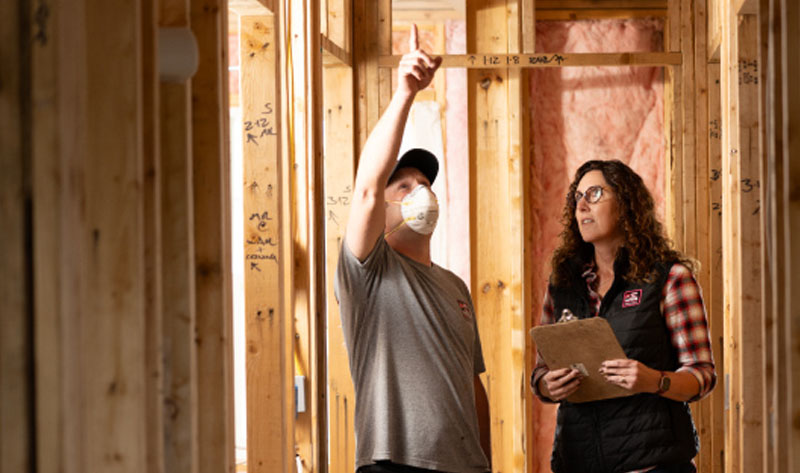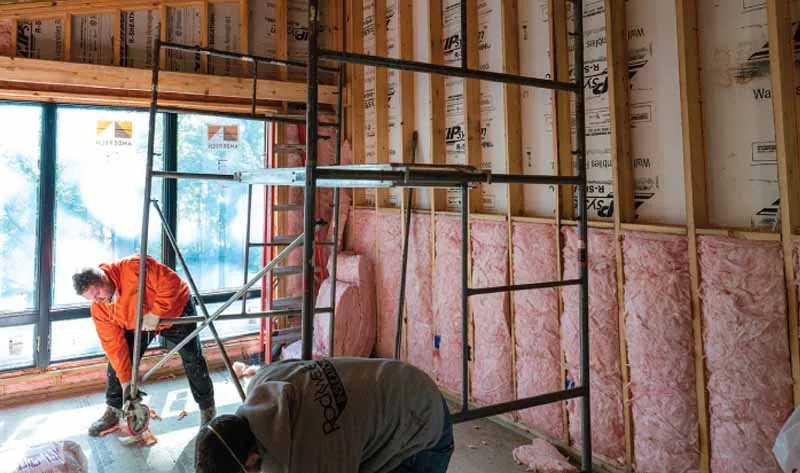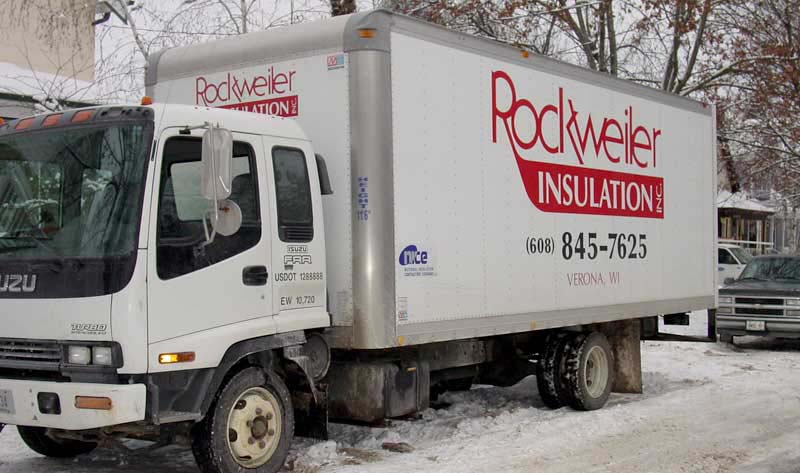Finding a contractor for your home improvement project is crucial for ensuring quality work, fair pricing, and a smooth experience. This comprehensive guide outlines nine essential steps Wisconsin homeowners should take when searching for and vetting contractors. By following these guidelines, you’ll be better equipped to identify a reliable contractor and avoid common contractor scams from unscrupulous “storm chasers.”
1. Clearly Define Your Project Needs

- Outline exactly what your construction project involves before contacting contractors.
- Create a detailed description to ensure all bidders are quoting on the same work.
- Include materials preferences, design details, and timeline expectations.
- Prepare details upfront to prevent misunderstandings and reveal which contractors truly listen to your vision.
- Having clear scope helps get accurate quotes and makes fair comparisons possible.
2. Ask for Recommendations & Check Reviews
- Start with real experiences of other homeowners – ask friends, family, and neighbors.
- Personal referrals are often most reliable to help find a trustworthy contractor.
- Check online reviews on Google, Facebook, and the Better Business Bureau.
- Look at overall star ratings and number of positive reviews.
- Review the contractor’s social media presence to gauge their culture and responsiveness.
- Leverage both personal networks and online resources to identify well-recommended professionals.
3. Verify Licenses, Certifications, and Insurance

- Never take qualifications at face value – always verify them.
- In Wisconsin, licensed contractors need a Dwelling Contractor Certification to pull permits.
- Request state credentials or license numbers and confirm through Wisconsin Department of Safety and Professional Services.
- Ensure contractors carry proper liability and workers’ compensation insurance.
- Ask for a certificate of insurance and call providers to confirm active policies.
- Proper licensing and insurance protect you from liability if accidents occur.
- Only hire licensed and insured professionals to reduce risk.
4. Check References and Past Projects
- Request references from recent customers you can contact.
- Call references and ask specific questions about their experience:
- Did the contractor finish on schedule?
- Was the quality of their work up to expectations?
- Did they communicate well and clean up after the job?
- Would they hire the same contractor again?
- Review the contractor’s portfolio of past projects they’ve completed.
- Consider visiting a current job site if possible.
- This verification confirms the contractor delivers on their promises.
5. Get Multiple Quotes and Compare Fairly
- Get at least 2–3 estimates from different contractors.
- Ensure each contractor is bidding on the same scope of work.
- Be wary of an extremely low bid – it could indicate missed scope, subpar materials, or future change orders.
- Have contractors visit your home to inspect in person rather than providing phone quotes.
- Choose based on value and completeness, not just price.
- Multiple quotes help you understand the market rate and spot outliers.
6. Insist on a Written Contract (and Read It)

- Get the agreement in writing before work begins.
- Contracts should include work description, materials, start/finish dates, payment schedule, and warranties.
- A comprehensive contract protects both parties by clearly outlining expectations.
- Don’t rely on oral agreements – they can be forgotten or misinterpreted.
- Wisconsin law requires written contracts when payment is required upfront.
- Take time to understand every clause, asking questions if needed.
- Confirm the contract includes provisions for disputes, work guarantees, and final payment terms.
7. Look for Local Presence and Professional Affiliations
- Choose contractors with an established local business address (not just a P.O. box).
- Contractors with local roots have a reputation to uphold in the community.
- Check for membership in professional groups like the National Association of the Remodeling Industry (NARI), Home Builders Association, or BBB accreditation.
- Professional affiliations indicate commitment to industry standards.
- Contractors with a local, permanent address are more likely to be available if issues arise later.
- Fly-by-night contractors often lack local roots and permanent locations.
8. Gauge Communication and Professionalism

- Pay attention to how the contractor communicates from the first interaction.
- Note whether they respond promptly to your calls or emails.
- Observe if they show up on time for appointments and listen carefully to your needs.
- Good communication is critical for a successful project.
- Consider your comfort level – you should feel heard and understood.
- For longer projects, you’ll be in close contact with this general contractor.
- Professionalism shows in the details, like providing written estimates, being polite, and maintaining a professional appearance.
- Trust your instincts – hire a good contractor who makes you feel confident.
9. Watch for Red Flags and Scams
- Be cautious of unsolicited doorknockers offering repairs, especially after storms.
- Reputable contractors rarely find work by going door-to-door.
- Avoid contractors using high-pressure sales tactics like “today-only” discounts.
- Never pay large full payments upfront before work begins.
- Be wary if a contractor cannot provide basic information like physical address or references.
- Fair contractors schedule payments tied to progress with the final payment upon completion.
- Listen to your gut – if something feels off, it probably is.
- For more details on avoiding scams, see our guide on spotting contractor fraud.
Finding a Partner That Lasts

Taking the time to find a trustworthy contractor is an investment that pays dividends in the quality of their work and your peace of mind. The extra effort you take in vetting contractors thoroughly from the start helps avoid costly mistakes down the road and ensures your home is in good hands.
By following the nine steps we outlined you’ll have a systematic approach to hiring a contractor that minimizes your risks. And you’ll have a well-chosen contractor as a valuable resource for both your current and future home improvement project needs. Remember, the lowest bid is rarely the best value when all factors are considered. And trust, communication, and professionalism are as important as technical skills and pricing.
For assistance with your specific construction project needs, consider contacting local professional associations, such as NARI of Madison, for contractor recommendations. The dedicated crew at Rockweiler Insulation has been an active part of our Madison community since 1983 and can answer your questions. Contact us today to speak with a member of our expert team. We’re here to help!
Works Cited
Better Business Bureau. (n.d.). How to hire a reliable and trustworthy general contractor. Retrieved from https://www.bbb.org/all/home-improvement/how-to-hire-a-reliable-and-trustworthy-general-contractor
Home Builders Association of the Fox Cities. (n.d.). Tips for choosing a contractor. Retrieved from https://hbafoxcities.com/tips-for-choosing-a-contractor/
Wisconsin Department of Agriculture, Trade and Consumer Protection. (n.d.). Consumer tips: Hiring a home contractor. Retrieved from https://datcp.wi.gov/Pages/Publications/HI-ConsumerTips136.aspx



